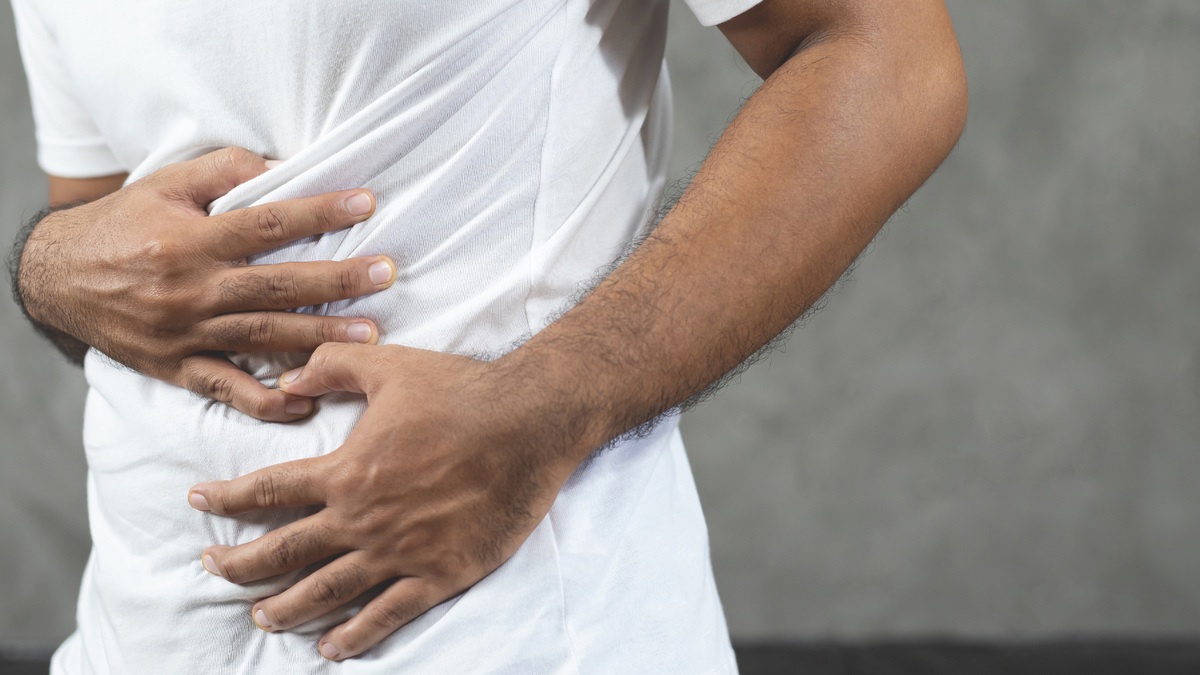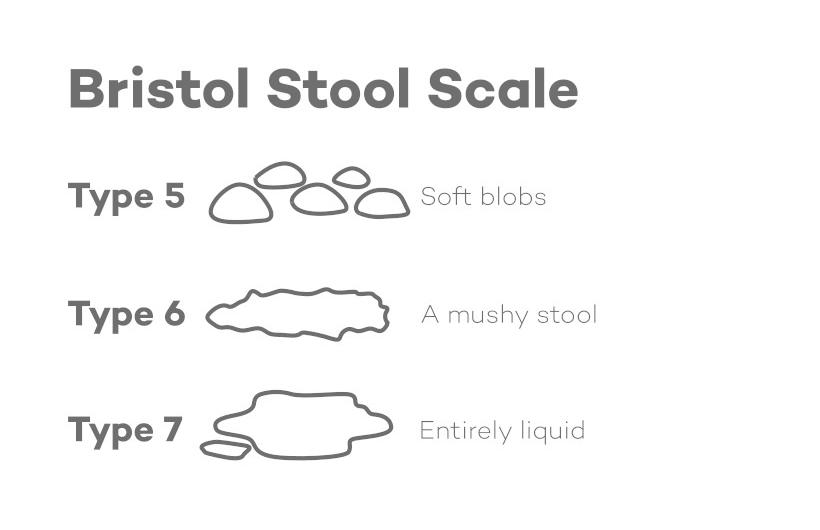Products
ContactBlog- Microbiome test
- Supplements
- Gut health app
About us
- About us
- Science Gut health app

On the Bristol stool scale, diarrhoea corresponds to stools of types 5 to 7.

Type 5: Stools that appear as soft blobs are considered normal by some specialists, while others say they are indicative of diarrhoea. Therefore, they might be viewed as falling somewhere between normal stools and diarrhoea.
Types 6 and 7: These certainly indicate diarrhoea. Type 6 stools have the consistency of watery porridge, while type 7 stools are completely liquid.
Diarrhoea can be caused by a number of things, but the important question is whether it is short-term issue or a chronic problem.
Short-term diarrhoea is something we all have probably experienced. It usually passes within a few days.
Acute diarrhoea can be bacterial or viral in nature or caused by a parasitic infection (so-called traveller’s diarrhoea) or something you’ve eaten.
Liquid stools after eating may indicate food poisoning, lactose intolerance, infection, excessive magnesium intake, or simply excessive coffee drinking. Additionally, liquid stools can be caused by spicy or fatty foods.
This kind of diarrhoea is not much of a problem for the body because it passes quickly. Just make sure to drink enough water to replace the lost fluids.
Severe or frequent diarrhoea lasting for weeks or more at a time is a sign of a more serious health problem and definitely needs medical attention.
Such diarrhoea usually results from a bowel disease, food intolerance, or another disorder, such as coeliac disease or Crohn’s disease.
Diarrhoea mainly results in dehydration, as it causes the body to lose a lot of water and salts in a short period of time.
If the lost water and salts are not replenished quickly, the body will start to ‘dehydrate’ – a condition where the body lacks the necessary amount of water and fluids to carry out its normal functions. This can eventually lead to seizures, low blood pressure, kidney failure, and even coma.
The other thing is that food will pass through your digestive system too quickly. Your body will be starved of nutrients because they are not given enough time to be absorbed into the bloodstream.
Note: If you have chronic diarrhoea, you should see your family physician as soon as possible!
In the case of chronic or very severe diarrhoea, you should first identify the causes and consult a doctor. Nonetheless, some changes to your diet might also help.
Our weekly newsletter where we talk about key insights into what makes a healthy and balanced life, and how to improve gut health and create sustainable habits
